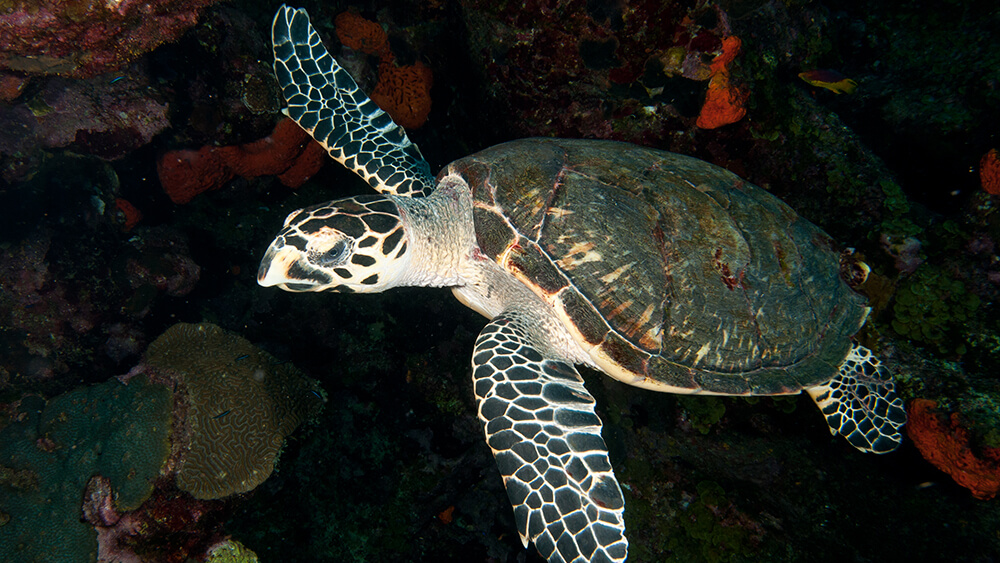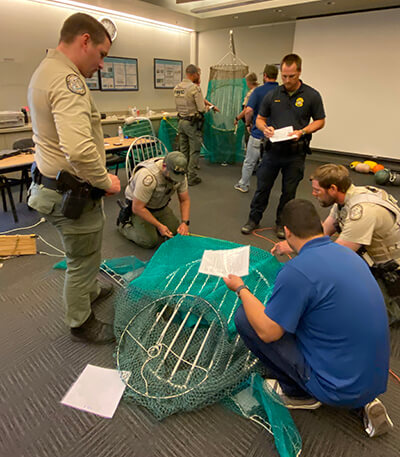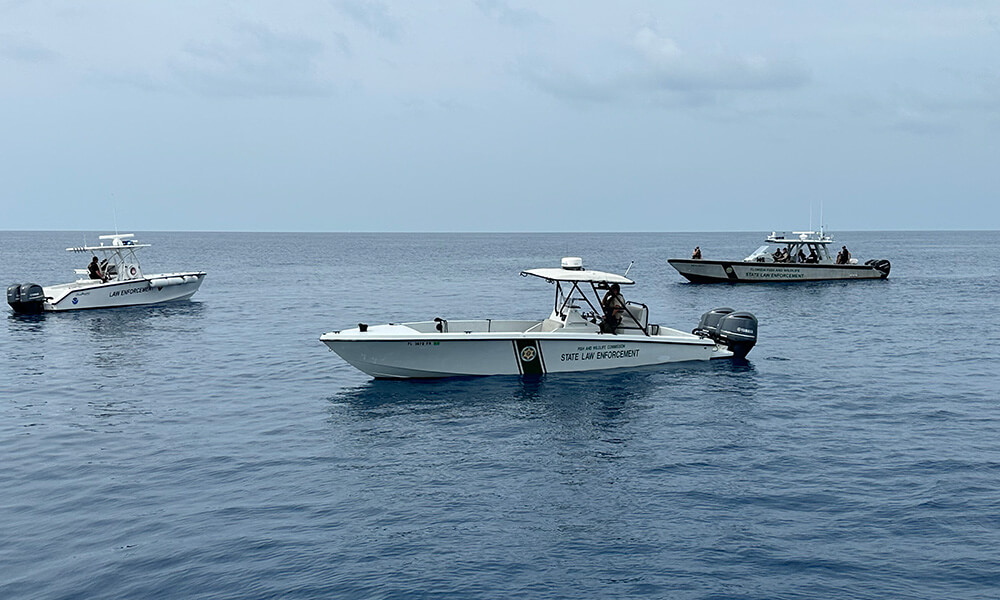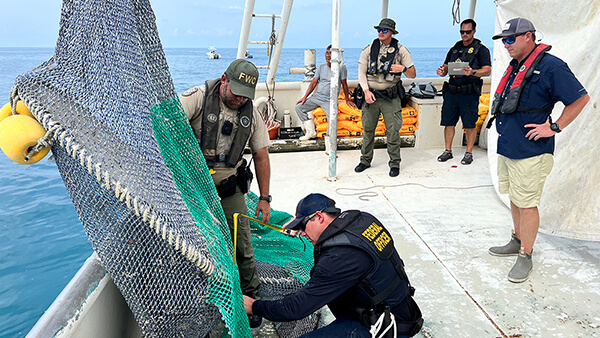Just in time for Endangered Species Day, NOAA's Office of Law Enforcement partnered with federal and state partners to protect turtles in Florida Keys National Marine Sanctuary.
Florida Keys National Marine Sanctuary is home to five out of seven turtle species that are protected under the U.S. Endangered Species Act hawksbill (Eretmochelys imbricata), green (Chelonia mydas), loggerhead (Caretta caretta), leatherback (Dermochelys coriacea), and Kemp's Ridley (Lepidochelys kempii). From birth to adulthood, turtles face a daunting list of challenges, not the least of which is wide nets cast by commercial fishermen. Sometimes fishermen catch and discard animals they do not want, cannot sell, or are not allowed to keep, creating what we know as ‘bycatch'. There is a solution to this threat, and a federal agency is making sure it's in working order.

NOAA's Office of Law Enforcement recently conducted a joint operation aimed at protecting sea turtle species in and around Florida Keys National Marine Sanctuary—a key protected area in the Southeastern United States. The operation, TED TALK, brought together partners from NOAA's Gear Monitoring Team and the Florida Fish and Wildlife Conservation Commission to protect sea turtles by enhancing our turtle excluder device (TED) inspections aboard fishing vessels.

Learn more about what fishermen can do to comply with TED regulations
To kick off the operation, officers participated in a TED-related training led by the Gear Monitoring Team at the newly reopened Florida Keys Eco Discovery Center. After officers completed this training, they conducted a series of patrols and offshore boardings focused on inspecting TEDs and ensuring compliance with federal and state fishing regulations. The five-day operation targeted federal waters in the southern Gulf of Mexico, including the protected Tortugas Shrimp Sanctuary. Partners from the Florida Fish and Wildlife Conservation Commission and staff from the Gear Monitoring Team assisted in the patrols and boardings.
During the operation, numerous vessels were boarded with the majority found to be in compliance with TED requirements, or with minor infractions that were resolved through compliance assistance. In a few cases, TED and fishing violations were more severe and formal investigations were opened.
Through the National Marine Sanctuaries Act, a system of 15 national marine sanctuaries and two marine national monuments has been developed that seeks to protect America's most iconic natural and cultural marine resources. Protected within these are important habitats like breeding and feeding grounds, coral reefs, kelp forests, and important artifacts.


"It is our job to enforce the rules and regulations designed to conserve these marine protected areas and the species that inhabit them," said Manny Antonaras, assistant director of NOAA's Office of Law Enforcement, Southeast Division. "By working with partner enforcement agencies we promote responsible and sustainable ocean use that helps preserve these special places for future generations."
The Endangered Species Act is celebrating its 50th anniversary in 2023, and May 19 has been declared Endangered Species Day. Operations like TED TALK are critical to protecting and conserving our national marine sanctuaries and their regulated species. To report suspected violations of the National Marine Sanctuaries Act, call NOAA's Law Enforcement Hotline, available 24/7 at (800) 853-1964.

